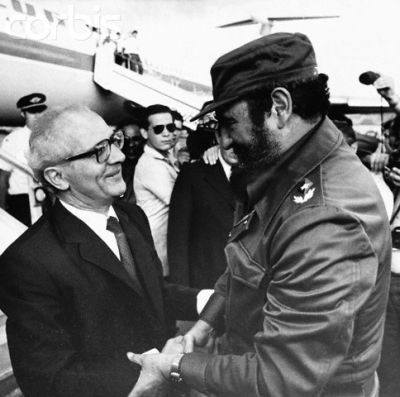
In fewer than 80 words (counting signature, date and title), the Cuban ex-president published one of his briefest texts yesterday. “Conduct that is not forgotten” is the title of his most recent reflection, where he defines Erich Honecker, the former leader of the defunct GDR, as “the most revolutionary German” ever known.
The cryptic part comes when he says, “It was my privilege to observe his conduct when he paid bitterly the debt contracted by the one who sold his soul to the devil for a few drops of Vodka.” As in politics metaphors often produce confusion, I would like to make an attempt to unravel the references.
“The one who sold his soul to the devil for a few lines of Vodka,” must be Boris Yeltsin, although I’ve been given to understand that the drops ingested were many, not few. “The debt contracted” must be an illusion to the final dismantling of the socialist system, including the disintegration of the USRR, which Yeltsin brought to a head during the Christmas holidays of 1991 in exchange (according to Fidel Castro) for some sips of his favorite drink and that occasioned, in July 1992, the extradition of Honecker to Germany. After the disintegration of the GDR Honecker had been exiled to the Chilean embassy in Moscow to escape justice.
The hard part of the interpretation is what the conduct of Honecker has to do with paying the debt contracted by Yeltsin, which the Reflective One asserts he had the privilege to observe.
Those of us who did not have this prerogative, only know that in November 1992 he was tried for High Treason for his responsibility of the death of 192 people who tried to escape the socialist paradise via the Berlin Wall. Showing a generosity that the accused never had toward his victims, the unified Germans, without even sentencing him, awarded him the right to spend his last days exiled in Chile, where he died of liver cancer on May 29, 1994.
I do not believe it would be a distortion to elucidate that Honecker’s conduct, while he bitterly paid the debt contracted by Yeltsin, was that of justifying or denying the crimes imputed to him, awakening in Fidel Castro the deepest sense of solidarity.
Others may conclude that the text contains more inscrutable metaphors, even more current ones. Perhaps they know someone addicted to vodka inclined to sell his soul to the devil.
12 June 2012
